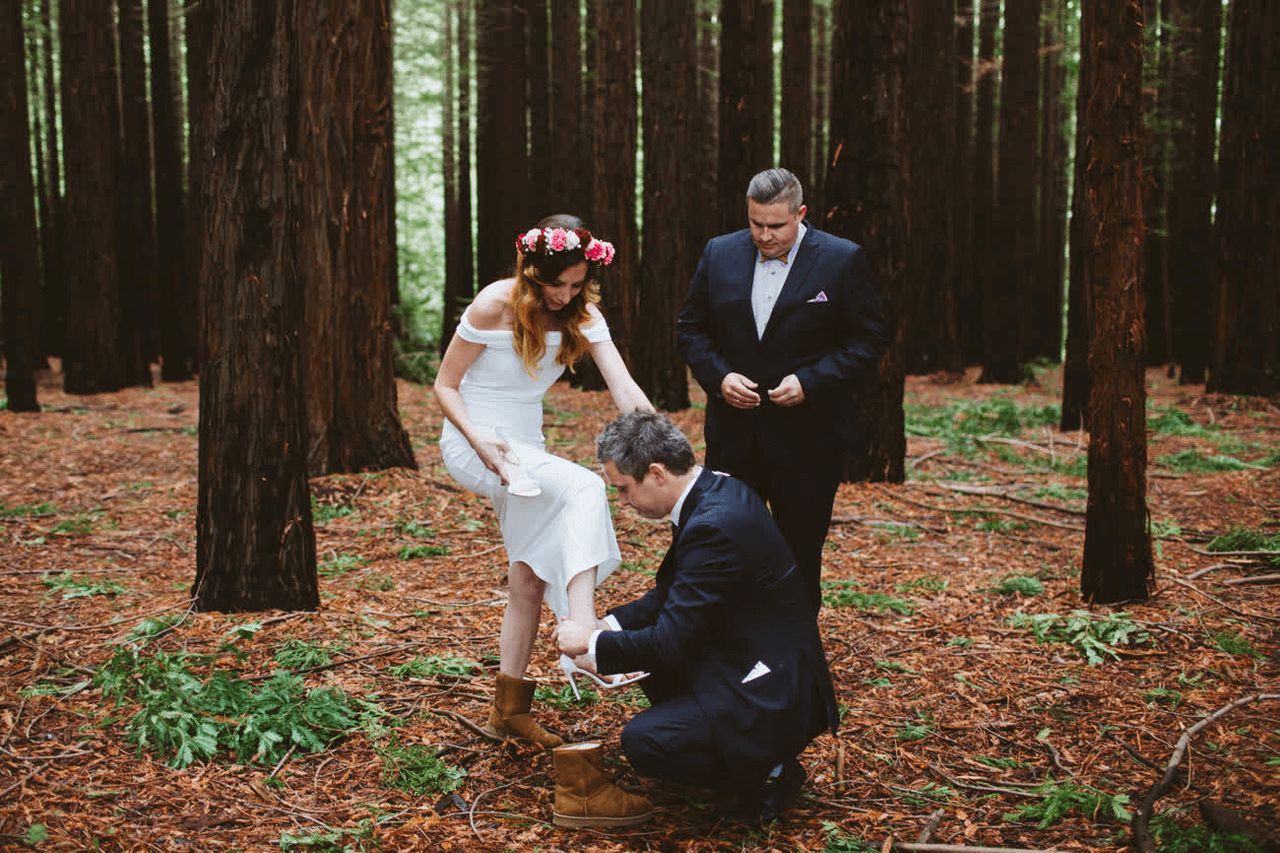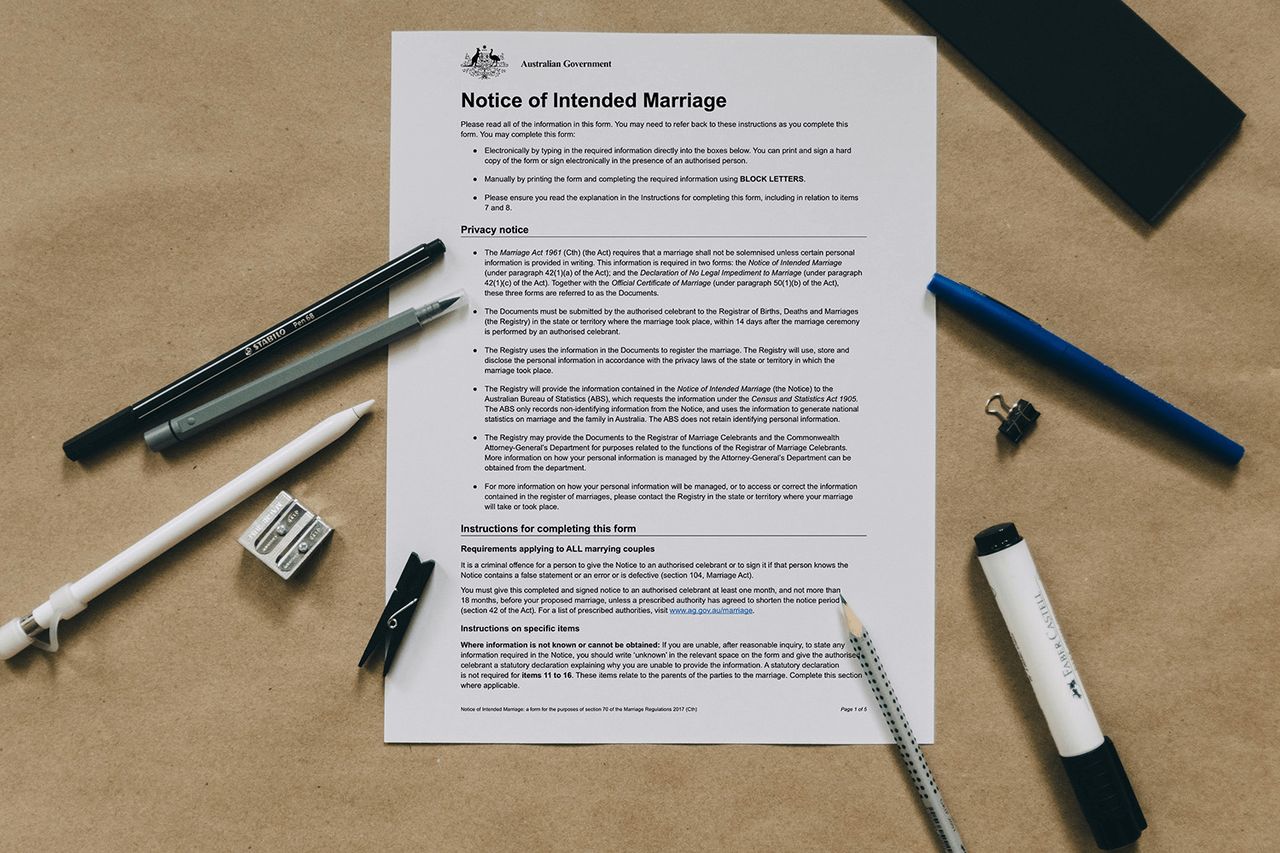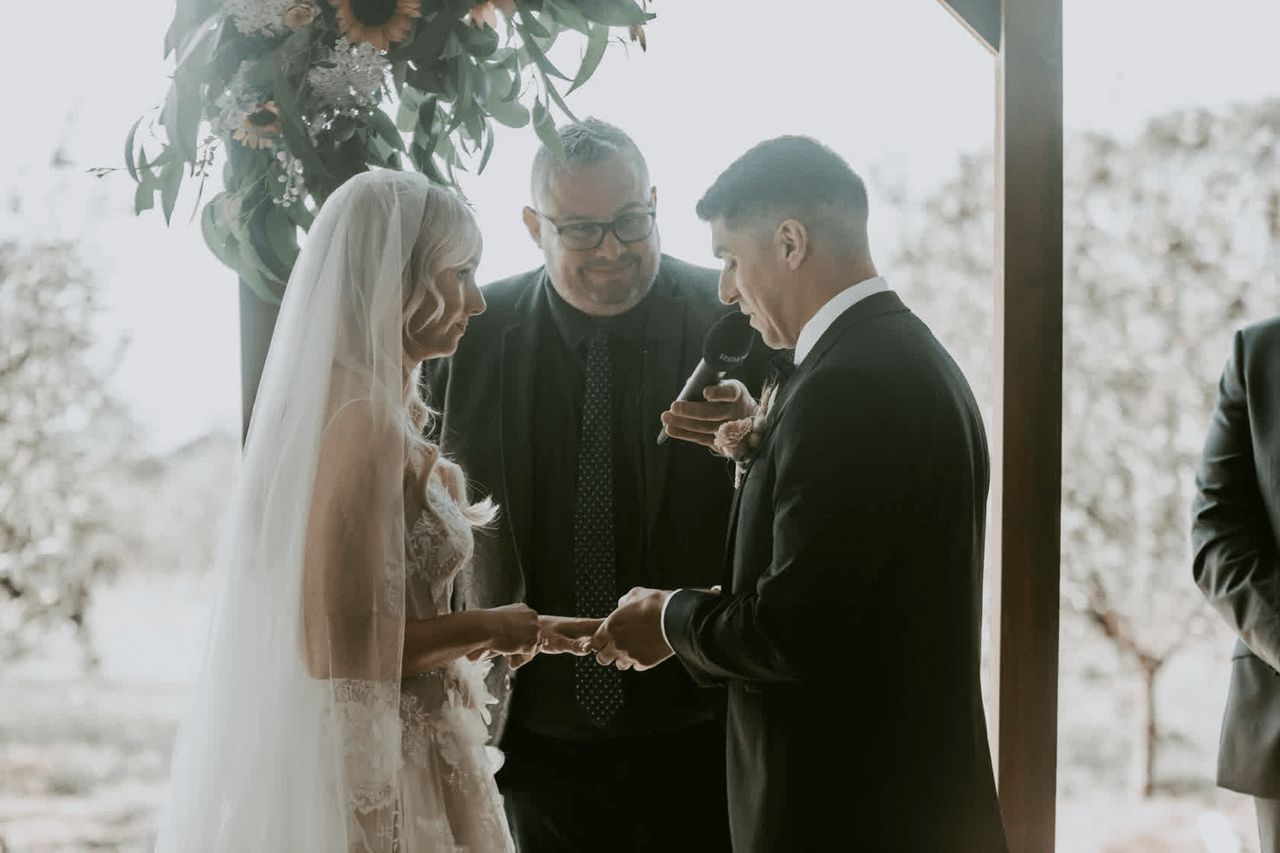· Marriage Laws · 3 min read
Marriage and just the legal bits
Ask anyone on the street and there's a bunch of things they think need to happen at Australian weddings

Beyond the flowers, dresses, and finding an affordable reception venue, there is a very important aspect to your wedding day: the marriage itself. Obviously, that’s the part where I carry most of the responsibility. The Attorney-General’s office has released guidelines for civil celebrants like myself, and I wanted to share a few key points from these documents on the blog.
One of the more technical aspects prior to your wedding day is this guideline: “It is critical to your role to make sure that everything is done according to the Marriage Act and the Marriage Regulations and take all necessary steps to make sure the marriage will be valid.” That’s why I’ll ask you some questions when we first meet, such as your age and whether you’ve been married before, to ensure compliance with the law.
Marriage is defined in law as “the union of 2 people to the exclusion of all others, voluntarily entered into for life” (Marriage Act 1961). Australia recognises marriage equality, so couples of any gender can marry. The law does not exclude people of other nationalities either; as long as you meet the Marriage Act 1961 requirements, you can be married in Australia.
The guidelines also state that if you’re unhappy with my service, you can make a complaint to the Attorney-General’s Department. Details on how to do this are available on their website: http://www.ag.gov.au.
All Commonwealth-registered celebrants like myself must undergo hours of ongoing professional development each year. This ensures we are continuously learning and striving to make your wedding day as seamless as possible.
Notice of Intended Marriage (NOIM): By law, notice of a wedding must be given at least one month before the wedding day by submitting a NOIM form to your celebrant. However, don’t assume you can leave wedding planning to the last minute!
- In some special circumstances, the one-month notice period can be shortened. For example, this might occur if the couple has employment-related or travel commitments, urgent medical reasons, religious considerations, or if an error occurred in giving notice.
- The NOIM form must be signed and witnessed either in person or over a video call.
The Marriage Act allows others to participate in your ceremony under my supervision, but I am ultimately responsible for ensuring that the marriage complies with all legal requirements. For instance, if your uncle (who is not a registered celebrant) wants to run parts of the ceremony, I can supervise this arrangement—but I don’t have to agree. The validity of the marriage remains my legal responsibility.
There’s plenty more to know, but I thought I’d share a few points to give you insight into the behind-the-scenes legislation involved in your marriage! For more information, head to the official site: ag.gov.au/celebrants.



